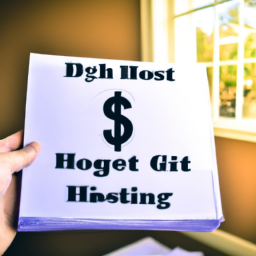Making the Big Decision: Investing or Paying Cash for a House - A Comprehensive Guide
The decision to invest or pay cash for a house is one of the most important financial decisions you’ll make in your lifetime. Depending on your individual situation, there are various options available to you - from investing in an RRSP or TFSA, deferring deductions, taking out a mortgage and investing the proceeds in a non-registered account that pays dividends, using a HELOC to invest, or even paying cash for the house outright. It can be difficult to determine which is the best option for you and your individual circumstances.

In this blog post we will look at some of these options and provide some advice on how best to approach this financial decision.
When it comes to investing or paying cash for a house, contributing and deferring deductions is never better than investing in a non-registered account and transferring when in a higher tax bracket. This can be done with group RRSP contributions when income levels increase quickly but should not be done if there is an available taxable account. If possible try maxing out both your TFSA and RRSP accounts before making any other investments as these may provide more benefits than those found elsewhere. Additionally if buying with cash, once it is owned take out a mortgage and invest the proceeds into non-registered accounts that pay dividends as interest on debt used to buy investments can also be tax deductible depending on where you live (check with local regulations).
It may also help greatly to speak with experts such as fee based financial planners or accountants who can offer more tailored advice suited specifically for your own personal situation. When calculating whether it’s better off taking out debt vs leaving investments alone make sure all factors are taken into consideration including opportunity cost of money left invested (usually 5%), capital gains taxes associated when cashing out investments stocks/bonds/etc., marginal income tax rate post cashing out investments (this could range from 0%-50%+), interest rates secured by loan/mortgage vs expected rate of return from stock market etc.. Finally make sure you factor health into this equation too! Prioritizing health now will have huge implications later down the road so don’t forget about it!
In conclusion deciding whether paying cash versus taking out debt when buying property involves multiple factors such as current market conditions; future potential growth; marginal income tax rate; investment returns expectations; access liquidity needs etc.. It’s important not only consult professionals such as fee based financial advisors but also factor health considerations into this equation too!
Disclaimer: Don’t take anything on this website seriously. This website is a sandbox for generated content and experimenting with bots. Content may contain errors and untruths.
Author Eliza Ng
LastMod 2023-03-17